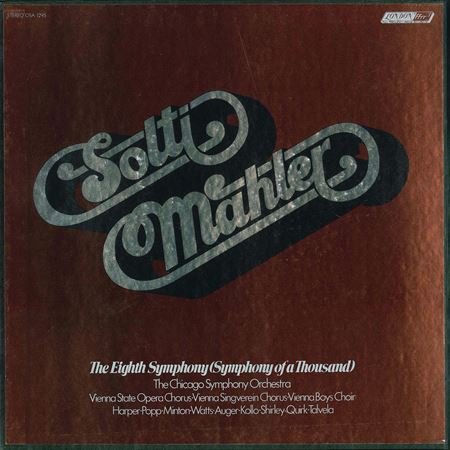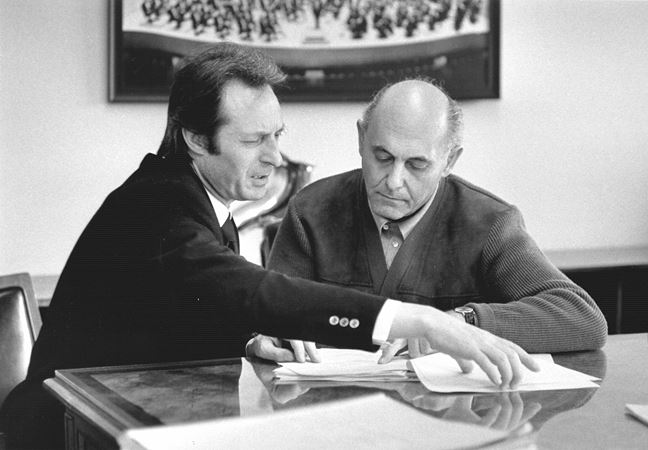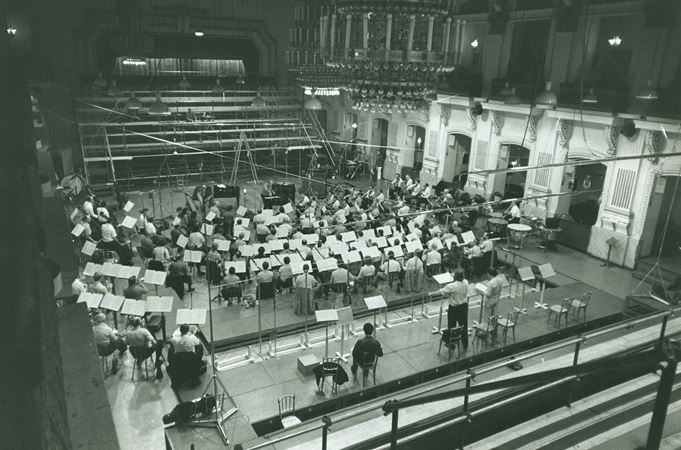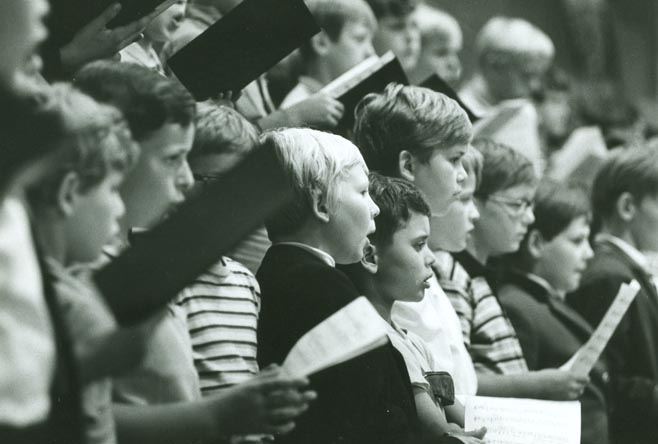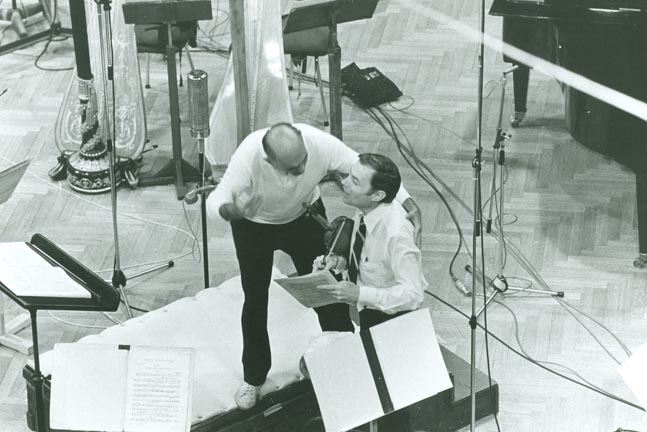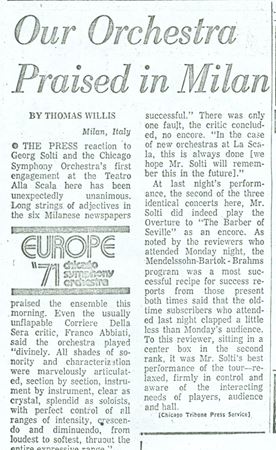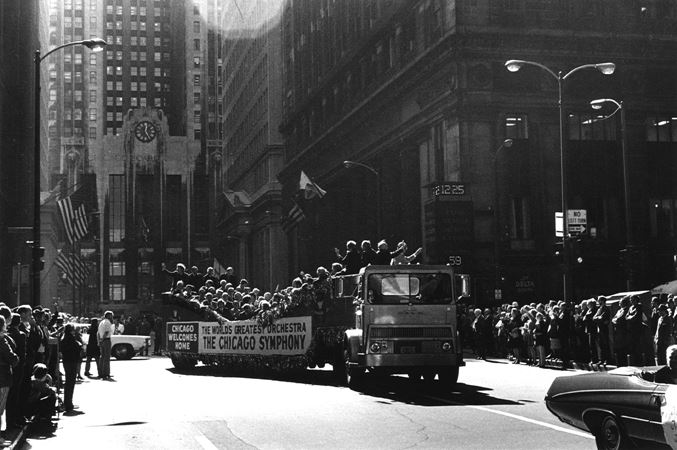On August 26, 1971, the Chicago Symphony Orchestra — plus family members, administrative staff, trustees, governing members and several members of the press — departed Chicago for Vienna, embarking on the ensemble’s first overseas tour to Europe.
Georg Solti, beginning his third season as eighth music director, and Carlo Maria Giulini, the first principal guest conductor, would join the Orchestra on the road for nearly six weeks for a tour that included 25 concerts in 15 venues in nine countries: Austria, Belgium, England, Finland, France, Germany, Italy, Scotland and Sweden. The repertoire varied from symphonies by Beethoven, Brahms, Mahler, Haydn, Mozart and Tchaikovsky; to piano concertos by Mozart and Prokofiev, featuring Vladimir Ashkenazy and Rafael Orozco; and orchestral works by Bartók, Berlioz, Carter, Ravel and Stravinsky. No other international tour since has included more concerts or a wider variety of programming.
The detailed tour schedule is available here:
The first concert of the tour was given in Edinburgh’s Usher Hall on September 4, with Solti leading Mendelssohn’s Overture to A Midsummer Night’s Dream, Carter’s Variations for Orchestra and Brahms’ First Symphony (a video of most of that performance is available from ICA Classics). The final concert was given on October 5 in London’s Royal Festival Hall, with the Orchestra performing Mozart’s Symphony no. 39, Ravel’s Rapsodie espagnole and Beethoven’s Seventh Symphony under Giulini’s baton.
Consistently welcomed and cheered by capacity audiences, the Orchestra received overwhelmingly favorable critical response. Upon their return to Chicago, the musicians were welcomed as heroes with a tickertape parade down State and LaSalle streets on October 14, 1971.
Before the Orchestra performed a single concert, there were four recording sessions for Mahler’s Eighth Symphony at the Sofiensaal in Vienna beginning on August 30. The cast included sopranos Heather Harper, Lucia Popp and Arleen Augér; mezzo-soprano Yvonne Minton; contralto Helen Watts; tenor René Kollo; baritone John Shirley-Quirk; bass Martti Talvela; and three choruses: the Chorus of the Vienna State Opera, the Singverein Chorus and the Vienna Boys Choir.
London Records released the recording in October 1972. In Gramophone, Edward Greenfield wrote, “Now at last Mahler’s Symphony of a Thousand can be heard on record at something approaching its full, expansive stature. Here is a version from Solti which far more clearly than any previous one conveys the feeling of a great occasion. Just as a great performance, live in the concert hall, takes off and soars from the very start, so the impact of the great opening on ‘Veni, creator spiritus’ tingles here with electricity . . . [with] playing from the Chicago orchestra that shows up all rivals in precision of ensemble, Solti’s performance sets standards beyond anything we have known before. . . . This is as near a live performance as the dynamic Solti can make it. At times, the sheer physical impact makes one gasp for breath, and I found myself at the thunderous end of the first movement shouting out in joyous sympathy, so overwhelming is the build-up of tension. . . . No doubt one day the achievement of this first really great recording of Mahler’s Eighth will be surpassed, but in the meantime I can only urge all Mahlerians — and others too — to share the great experience which Solti and his collaborators offer.”
The recording would win three 1972 Grammy awards for Album of the Year–Classical, Best Choral Performance–Classical (other than opera) and Best Engineered Recording–Classical.
